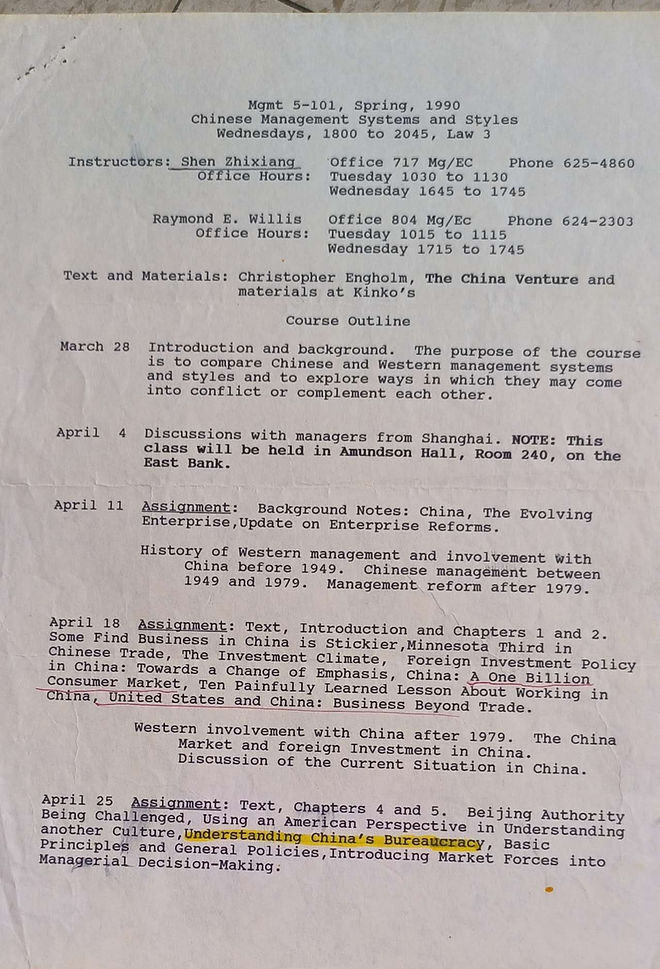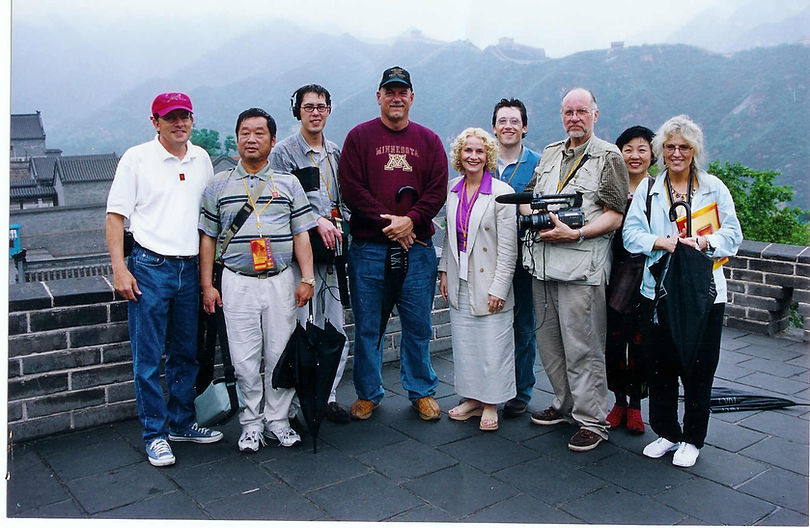SHEN FAMILY LEGACY
沈氏家族

Jay Shen (Zhixiang)
Jay Shen is the 2nd son of C.S Shen, Born in 1945, July 29th in Sichuan, because the family was moving around the country during the war. At the beginning of the Sino-Japanese War, Shen, Chengshu moved westward with Zhejiang University. After graduation, he stayed in the southwest area to work until he returned to Peking to reunite with his family after the victory of the War. At the time, the family had to stop in Sichuan Province when the Chinese Nationalist army was eager to seize territory with the communist army during the Civil War. In order to celebrate the victory of the Anti-Japanese War, Jay was given a nick name “Li Sheng”, since he was born in 1945, the year Japanese surrendered, “Li Sheng” means Birth After the Victory.
Jay's Story
In 1951, he entered Beijing Shi-Jia Hutong Primary School, the best school in Beijing at the time, and one can argue in the entire nation. And in 1963, he was admitted to Beijing Institute of Technology. During the Cultural Revolution, he was labeled an “anti-revolutionary” and exiled to a poor mountain valley in Northeast China to work in a labor camp building a hydroelectric power station. He did not get his diploma until 1980, so he didn’t refer himself as a BIT alumnus. In 1978, he started to study English by himself from scratch, and in 1986, he was admitted as a visiting scholar to the United States. He arrived in the United States in 1987, a year later he became a visiting professor to teach MBA courses at Carlson School of Management. His paper was selected for the 1989 annual meeting at the Academy of Management, setting a record for a Chinese citizen’s paper to be selected for the annual meeting, which has not been broken for 35 years. In 1994, he received an MBA degree from St Thomas, but found that his personality and outlook were not suitable for development in the business world, so he turned to serve the Asian community and became a bilingual freelance reporter. He interviewed two US senators, the lieutenant governor of Minnesota, and he also interviewed Governor Jesse Ventura in the governor's office and participated in his trade delegation to China.
C.S Shen had commented that Jay's study is like a child building blocks. After finally building a building, he pushes it down and starts over again. Jay studied English and was admitted to study abroad on a government scholarship. Jay wrote a Chinese novel and won a $1,000 online literature award. But Jay always wants to do different things in life, depends on what gives him excitement. He normally would do his own things, and not following the rules. Jay said: “I will do what I like even if I don't get paid from it. I won't bother with things I don't like, no matter how much money I get from it.”
In 1989 after the Tiananmen Square Massacre, he spoke against those opportunists who wanted to use a political disaster for their personal gains, so he wrote an article to denounce those who wanted to game the system, and then he was being hunted down, criticized and isolated by the Chinese political opportunists. At the time, many Chinese nationals saw this as a golden opportunity to get their Green Card, therefore many of them applied for political asylum in the US. But they were not the real victims, they were opportunists, most of them were not the targets of the Chinese Government and many of them were in fact Communist Party members. They just wanted to use a political situation to make gains for themselves, which is a huge slap in the face to those Students at Tiananmen Square, who were the real victims of the state and faced real political persecutions. After Jay published his article showing their true intentions, those opportunists got enraged and made death threats to Jay Shen. They would make death threats, trying to persecute Jay and take away his voice, which is much like what the CCP would do to their opponents. After things got escalated, the U of M Police Department and the President of University of Minnesota stepped in to support Jay’s positions. Saying that anyone who would make death threats on campus would be immediately expelled. You can view the original letter below.

While Jay Shen was a professor at the Carlson School of Management, he taught business strategies to their MBA classes. Some of his lectures included "Ancient Chinese Management Thought and Its Significance for Management Today" and "Chinese Business Management and Styles -- Business beyond Trade". Jay mixed the Chinese Ancient Philosophy with the Modern American Management styles to give his students a refreshing viewpoint on doing business with China. Below are some of his original documents from Carlson.


Shen, Chengshu and his family first went to Tsingtao to reunite with his father Shen, Yangfang, and then took the whole family to the City of Shenyang and Tianjin to work. In 1948, at the height of the Chinese Civil War, the family often had to hide under the bed listening to the sound of artillery shells outside. After the Battle of Pingjin, Shen, Chengshu was invited by his Zhejiang University classmate Wang Daohan to go to Peking to participate in the establishment of the Ministry of Heavy Industry. In 1951, Jay Shen enrolled in the first grade of Shi-Jia Hutong Primary School nearby. Later, Shen, Chengshu went to Shanxi to investigate heavy industry and was retained by local officials. In addition, he saw that the war torn China had a lot of work to do and its industries were falling behind. He wanted to use his expertise in mechanical engineering to help the country, so he decided to leave the superior ministry and comfortable life in Beijing, and went to a city that was devastated by the war, the city of Taiyuan.
Jay Shen (Zhixiang) was suddenly dropped from an Elite Beijing Primary School into a vast sea of ignorant, close-minded barbaric and rude group of kids in Taiyuan. Not to mention the living and learning conditions were completely different from those in Beijing. Being surrounded by the barbaric behaviors every day almost drove him crazy, as if he had fallen from heaven to hell. However, with the family traditions in academic excellency of three generations, Shen firmly believed that the quality of the school could not change his capabilities, and no matter what kind of adversity he faced, it would not stop him from moving forward. In 1963, Jay Shen was admitted to the Radio Engineering Department of Beijing Institute of Technology (now the Electronic Engineering Department of Beijing Institute of Technology).
However, being admitted to a prestigious university in China did not bring a bright future for Shen. Mao’s political movements started to ravage China and tore the country apart from the 1950s. Shen family’s status during the Republic of China in the 1930s would already make him the Communists’ enemy. He was put on a special watch-list, monitored and criticized since he entered school. When the Cultural Revolution began, Jay Shen’s scholarly spirit broke out and he single-handedly resisted the persecution of the communist Red Guards During the Red Terror period when the Red Guards destroyed the Four Olds, ransacked people’s homes and killed anyone who resisted. But Shen, at the time decided he should stand up and resist to this kind of political persecution.
The result of his action made him became the target of public criticism in the movement. Not only was he brutally criticized and beaten, but also when others graduated, he was kept in school for labor reform to dig manure and grow vegetables. Unexpectedly, he became an experienced farmer. In October 1969, he was exiled to the bitter cold land of Northeast China to work in a labor camp to build a hydropower station for five years.
After the Cultural Revolution, Shen got married in 1978, he then started learning English from scratch while doing housework and taking care of his new born. In 1986, he was admitted to the state-sponsored study in the United States. However, the Chinese government made a deal that if you want to go abroad to the US, you must first go to the harsh countryside to help with poverty alleviation for a year. This was intended to make sure that you don’t forget how poor China still was and the hidden message was: You better come back later.
The United States is a free country where anyone with talents can shine. One year after arriving in the United States, he was hired as a visiting professor and taught MBA courses at Carlson School of Management. He wrote a paper on comprehensive management, consulting, history, and English knowledge, "The Ancient Chinese Management Thoughts and their Significance Today", which was selected as the 1989 annual meeting paper of the Academy of Management in the United States, becoming the first Chinese-born author to be selected for the annual meeting with a single signature paper. Thirty-five years have passed, and no Chinese nationals have been able to break that record. After obtaining an MBA degree from St Thomas in 1994, he felt that his scholarly temperament was not suitable to work in the business environment, so he turned to become a freelance Chinese-English bilingual journalist to elevate the voice for the Asian community. In 1999, he interviewed the Lieutenant Governor of Minnesota, and in 2001, He interviewed Minnesota Governor Jesse Ventura. In 2002, he joined the media group accompanying Governor Ventura on his visit to China and interviewed the governor on the Great Wall.

With Minnesota Governor Jesse Ventura

With Lieutenant Governor Mae Schunk

With Governor Jesse Ventura and his Delegation on the Great Wall of China